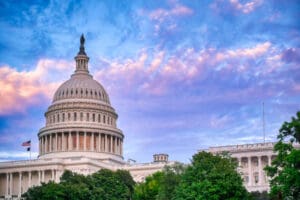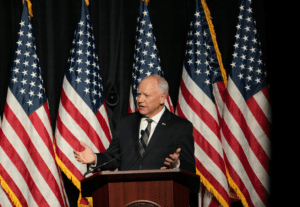The economic crisis caused by the coronavirus pandemic poses a triple challenge for tax policy in the United States. Lawmakers are tasked with crafting a policy response that will accelerate the economic recovery, reduce the mounting deficit, and protect the most vulnerable.
To assist lawmakers in navigating the challenge, and to help the American public understand the tax changes being proposed, the Tax Foundation’s Center for Federal Tax Policy modeled how 70 potential changes to the tax code would affect the U.S. economy, distribution of the tax burden, and federal revenue.
In tax policy there is an ever-present trade-off among how much revenue a tax will raise, who bears the burden of a tax, and what impact a tax will have on economic growth. Armed with the information in our new book, Options for Reforming America’s Tax Code 2.0, policymakers can debate the relative merits and trade-offs of each option to improve the tax code in a post-pandemic world.

Meals Taxes across the Nation
States would do better to broaden the sales tax base to include currently exempt classes of final consumption than to impose disproportionate taxes on prepared foods.
6 min read
10 Less Harmful Ways of Raising Federal Revenues
If lawmakers are convinced that new revenues must be part of any long-term effort to solve the budget crisis or offset the cost of extending the TCJA, they must choose the least harmful ways of raising new revenues or else risk undermining their efforts by slowing economic growth.
7 min read
How Do Import Tariffs Affect Exports?
When the government imposes a tariff, it may be trading jobs and production in one part of the economy for jobs in another part of the economy by increasing production costs for downstream industries.
6 min read
The Corporate Tax Rate Tug-of-War
Depending on the 2024 US election, the current corporate tax rate of 21 percent could be in for a change. See the modeling here.
4 min read
New York Budget Gap Narrows, but No Long-Term Solution in Sight
The recently released FY 2025 budget for New York State signals a degree of optimism, with caveats. New York cannot tax itself toward a balanced budget.
6 min read
Pillar Two’s Unintended Consequences
Pillar Two risks creating a more complex and unfair international tax system. It is inadvertently fostering new, opaque, and complex forms of competition, and policymakers should consider alternative approaches to creating a fairer international tax environment.
4 min read
How Tax Reform Can Bolster Americans’ Shrinking Savings
With pandemic-era savings now fully depleted and the majority of Americans pointing to their finances as their biggest source of stress, one thing is clear: the US needs policies that help people save more.
4 min read
How Did the Tax Cuts and Jobs Act Simplify the Tax Code?
Not every change in the Tax Cuts and Jobs Act simplified the tax code. However, the TCJA reduced compliance costs overall for individual filers, and allowing fundamental structural improvements to expire would make the tax code worse.
5 min read
Gov. Tim Walz Raised Taxes as Most Governors Cut Them
Gov. Walz’s tax policy record is notable because of how much it contrasts with broader national trends. In recent years, most governors have championed tax cuts. Walz, rare among his peers, chose tax increases.
5 min read
STATES 2.0 Act Sets the Stage for Federal Cannabis Policy
According to recent reports, 72 percent of the current marijuana market in the US is illicit. Evidently, the federal criminalization of marijuana has failed to prevent its sale or consumption.
6 min read